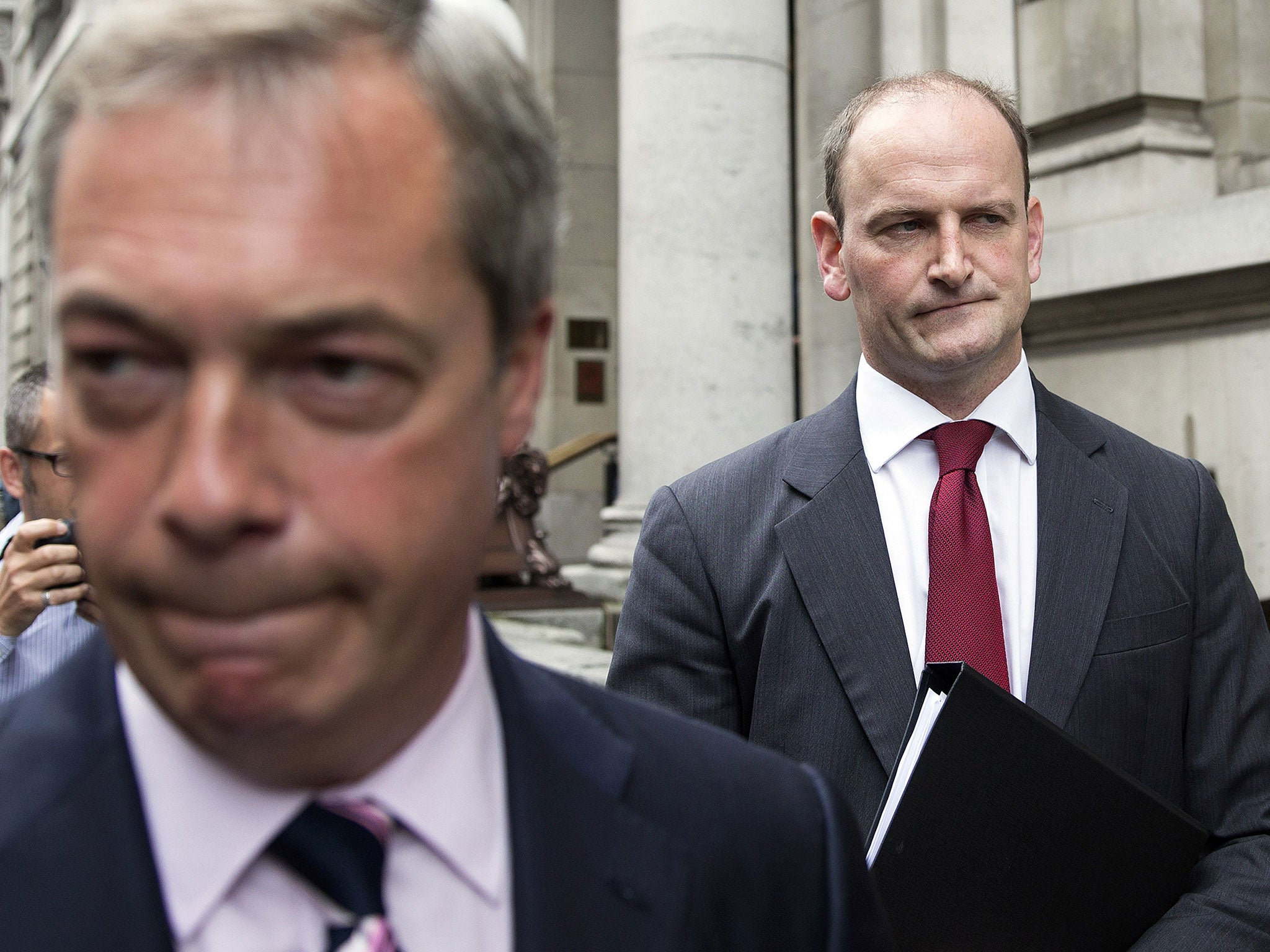Carswell’s defection was a nightmare for Cameron, but disaffected Tories would be wise to stay put
For any Eurosceptic MP, Cameron's original offer is still their best bet


Defections from one party to another are a surprisingly accurate barometer of the wider political mood, more reliable than opinion polls or focus groups. Defectors can be eccentric and self-interested as much as they are principled and brave. Whatever the motivations and character of those involved, when an MP leaves one party and joins another there are wider lessons about the overall direction of political travel.
But what can we discern from the defection of Douglas Carswell to Ukip, a party that has no hope of forming a government after the election? Of course the immediate nightmare for David Cameron is that a single move by one individual triggers many other damaging stories about the Conservative party and Europe. The revelation in yesterday’s Independent that up to a hundred Conservative MPs will declare in favour of leaving the EU at the next election is the latest example.
Yet Carswell’s defection is unusual in that it does not make much sense. The dangerous defections are those that are obviously based on reason and logic. In the late 1970s and 1980s the high profile defections were away from Labour. Well-known figures sought solace in the SDP. A few made the leap to the Conservatives. Those that switched complained that Labour was too left wing and moved to parties that appeared to have some chance of governing in one form of another.
From the mid-1990s the reverse applied. Several senior Tories made the jump to Labour or the Liberal Democrats. They complained that the Tories had become too right wing and so moved away from the right to parties that might govern soon. When Cameron and George Osborne seized control of the leadership in 2005 they ached above all for a high profile defection from the Liberal Democrats or Labour’s Blairite wing, aware of the potent symbolism. They failed to attract any significant figure because their self-described modernising project was relatively shallow, as they discover now with their party having another row about Europe.
In each case the defections or lack of them told us much about the broader political situation. Labour was doomed to opposition in the 1980s. The Conservatives were similarly doomed from 1997. Cameron did not change his party enough to win in 2010. Carswell’s defection reveals a more muddled picture. His switch confirms what we already know, that the Conservatives are a troubled party in relation to Europe and several other issues. But there have been no high profile defections to Labour in this parliament. If there had been, Ed Miliband would almost certainly be marching towards a big victory.
Some argue that Carswell has acted rationally on the grounds that if Cameron were to win the election, his subsequent negotiation with the rest of the EU would be a sham, because the PM is thought to want to stay in Europe. According to this logic Carswell’s anti-Europe cause is advanced more effectively by a defeat for Cameron at the election, followed by a realignment on the right that would eventually lead to a more robust governing force committed to pulling out of the EU.
This is a logic that leaps several hurdles.
Indeed the sequence requires leaping over so many hurdles that the calculations behind it become illogical. Cameron has handed the Eurosceptics a gift. If he wins they get an in-out referendum. Do other Tory MPs want to blow this chance on the basis that there is a bigger dream to be realized at a later date? I doubt if many share with enthusiasm Carswell’s implied vision of a regrouping in impotent opposition.
They would be taking a massive risk. Politics can move quickly. If the Conservatives lose there is a chance at least that they will be out of power for more than one term, a split opposition fuming over Europe, while a Labour government implements other contentious measures, unrelated to Europe, that would push the EU even lower down the list of voters’ concerns than it already is.
If I were a Tory MP obsessed with Europe I would calculate that a referendum in 2017 is still the best offer available and campaign energetically to bring it about. Cameron’s offer remains their best bet.
As a result, Carswell’s defection tells us much about the current political situation but does not change it greatly. The Conservatives are impossible to lead in relation to Europe and have not changed much as a party since Cameron became leader.
Labour is not heading for a big victory or else it, rather than Ukip, would be attracting prominent defectors. Ukip makes waves but will not secure much more than a couple of seats at the election. In spite of Carswell’s dramatic defection, the dangers of tumultuous instability for the Conservative party lie not before the election, but after it. The danger will be at its peak if Cameron wins.

Join our commenting forum
Join thought-provoking conversations, follow other Independent readers and see their replies